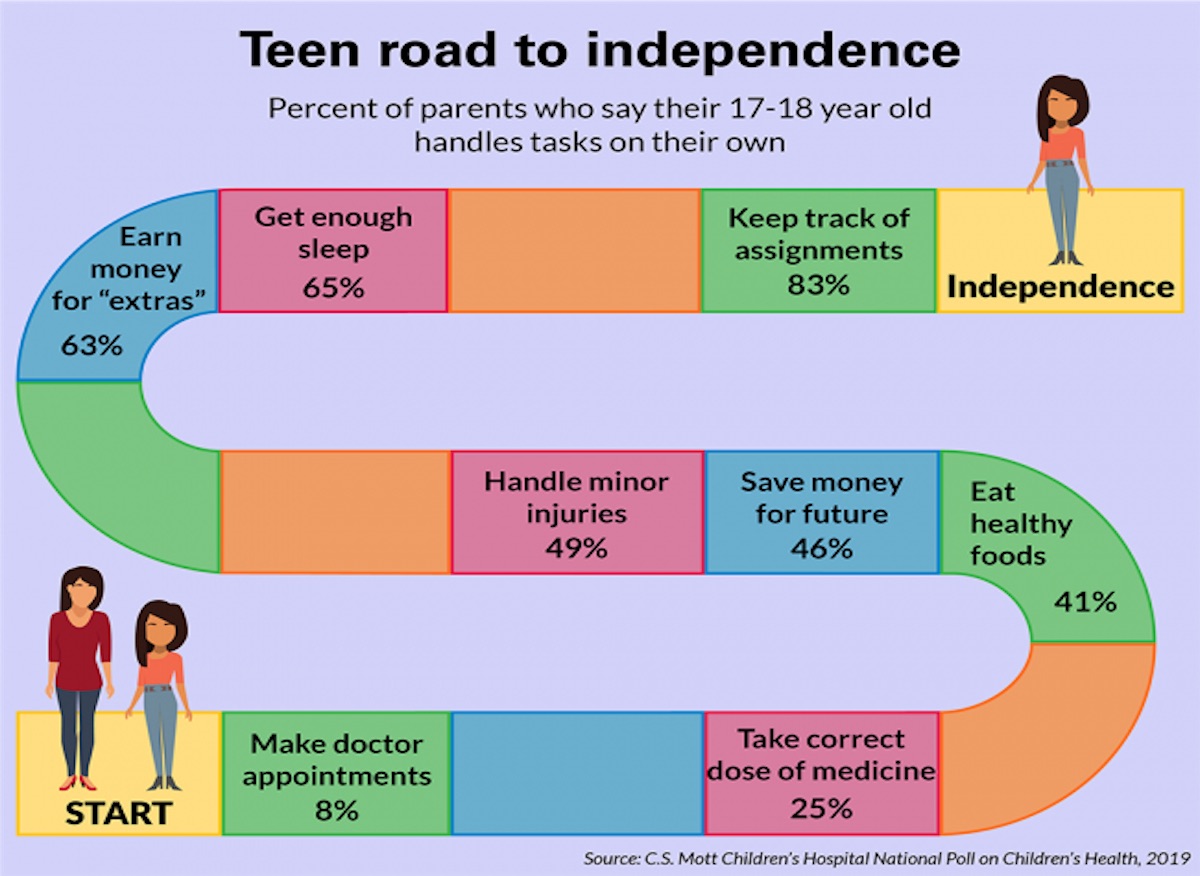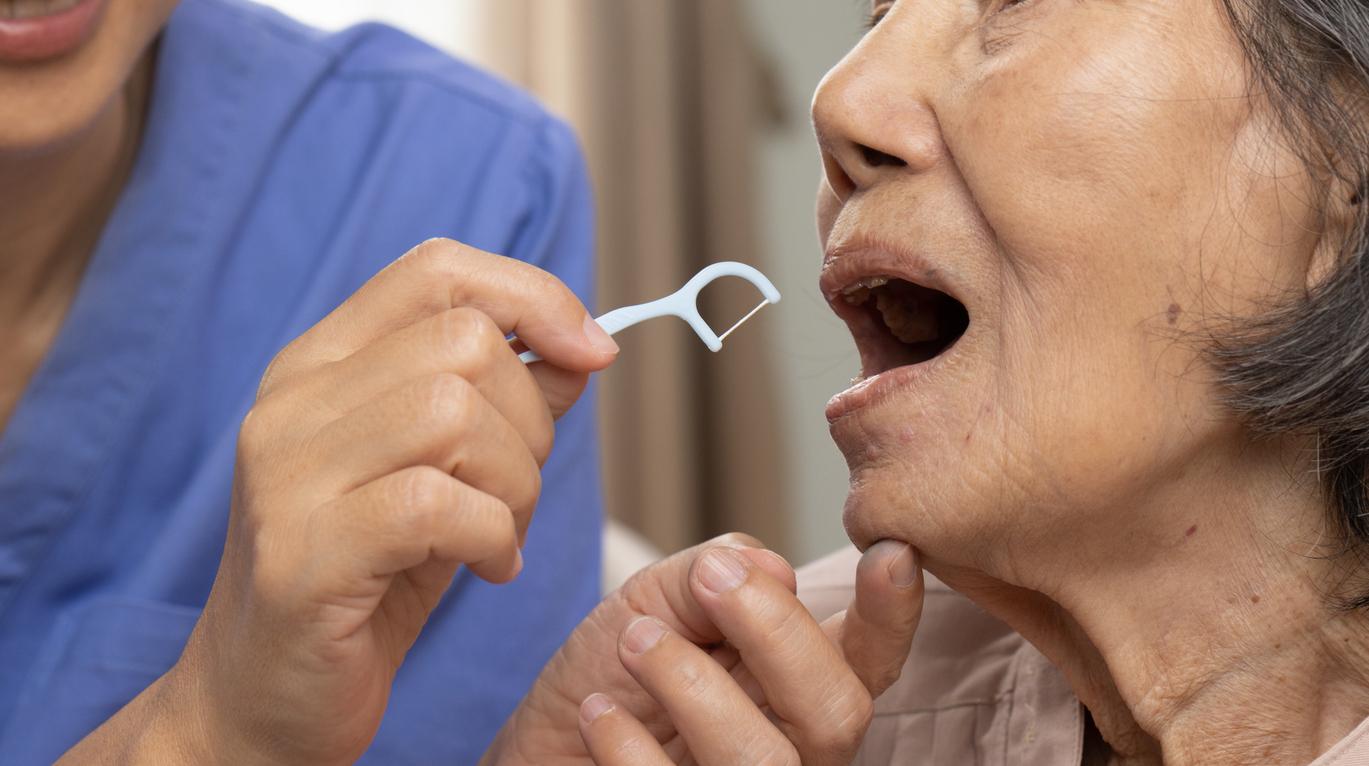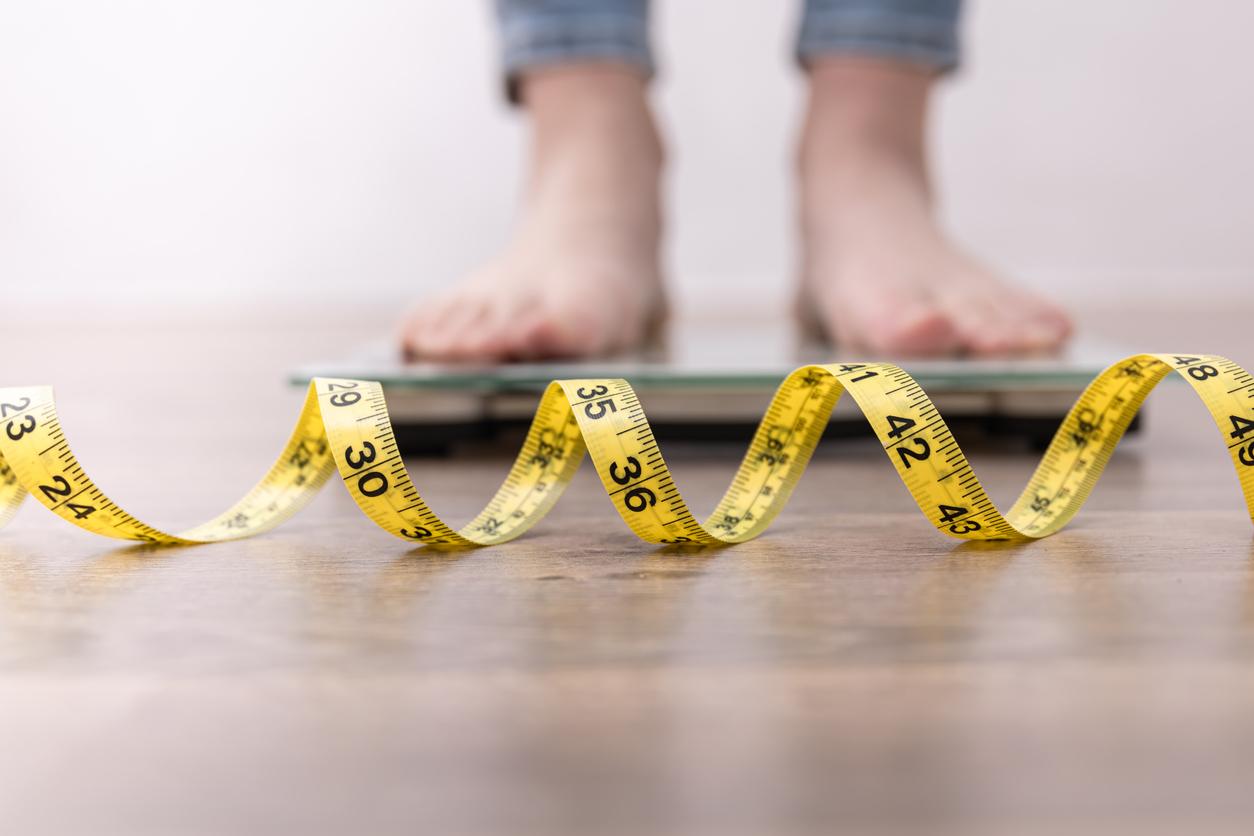According to an American survey, parents are the first obstacle to a teenager’s transition to adulthood. Indeed, far too many of them refuse to let go of the management of daily tasks, especially those relating to health.

With the development of secondary education in rich and the increase in higher education (today in France, six out of ten students are registered at the University), more and more children continue to live with Papa and Maman well after their majority. A phenomenon that unfortunately often prevents them from developing the independence necessary for adult life. Whether it’s knowing how to cook, clean or take care of their health, many young people are not independent enough.
And according to a new survey conducted by the University of Michigan in the United States published on July 22, the first responsible for this lack of resourcefulness would be… the parents. Indeed, the latter all too often have difficulty letting go and delegating tasks of daily life to their teenagers, thus accompanying them badly and too little in their transition to adulthood.
To come to this basically unsurprising conclusion, the researchers conducted their survey of 877 parents with at least one child aged 14 to 18. Results: if 97% of respondents claim to help their children become adults through different strategies such as allowing them to make more decisions on their own (86%), pushing them to solve certain things on their own (74%) and no longer do for them (65%), confidence is far from being there.
It is in the field of health that parents find it most difficult to delegate
Thus, for 60% of the parents questioned, what prevents a teenager from becoming an adult comes down to the very particularity of adolescence: not being mature enough (24%), not having enough time (22%) or not know enough to take on more responsibility (14%). Only a quarter of parents admit to having something to do with their child’s lack of resourcefulness, acknowledging that it is faster and easier to do things themselves (19%) or that they simply forget about him give more responsibilities (7%).
Logically, it is in the area of health that parents are least able to let go. Because they are always afraid that their children will not receive the appropriate care when they are sick.
“We did not ask the parents about life and death matters. We asked them if their child could perform very basic tasks independently such as tending small wounds, guessing the correct dose of medicine to ingest or make an appointment with the doctor (…) It is crucial for teenagers to start taking care of their health before they become adults where they will have more complex tasks to accomplish”, explains Sarah Clark, who led the ‘study.

Establish specific milestones to complete
“When children become teenagers, the role of parents then becomes to help them acquire the knowledge and experience they will need to become independent adults (…) This includes preparing for work and financial responsibilities but also to take care of their health and well-being. Our survey suggests that parents are not letting go of the reins as often as they should to help teens make this transition successfully,” she laments.
Because if all parents admit that it is important that their teenager make mistakes, they should not be too big either.
Clark therefore recommends that parents position themselves as safety nets who should be consulted only when the teenager really cannot deal with the problem independently. Parents should also establish specific milestones to go through and guide their child through this journey.
Support more teens “in the transition to adulthood”
“Parents think they have to take certain responsibilities under control because they don’t think their teen is mature enough (…) But this type of logic prevents their child from becoming more mature,” Clark insists. And to conclude “parents must spend more time supporting their teenagers in the transition to adulthood”.
If you are running out of ideas on how to make your child independent, the alloprofparents site offers a chart of daily tasks to distribute to your children according to their age. From the age of 12 and over, the latter recommends letting the children prepare their lunch alone, washing the windows once a week, mowing if there is a garden, supervising the little brothers and sisters, doing some babysitting with other families to earn pocket money, emptying the trash cans or even changing the sheets yourself.
In a more spiritual approach, you can encourage your children to read certain books that you think are essential to develop critical thinking, encourage them to have charitable commitments and give their time to associations or even take them camping in the forest or hiking. in the high mountains to teach them how to pitch a tent or make a fire.
.

















